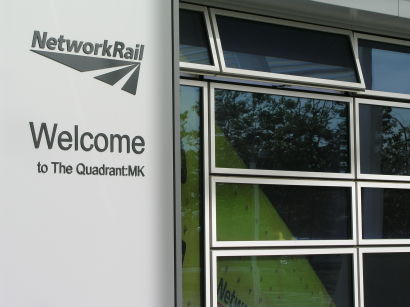THE new chief executive of Network Rail has revealed his plans for the organisation’s future, after a three-month period of consideration.
Andrew Haines had already warned that railway operation was too far down Network Rail’s agenda, and Network Rail said the new plans involved ‘reorganising to put passengers and freight users first’.
The key will be more devolution, with the creation of five new regions and 13 routes, rather than eight. The 13 routes will be responsible to five regional managing directors.
NR said that the new regions would support the routes, ‘making us fleeter-of-foot’, as one insider described it to Railnews.
There will be a smaller administrative centre, and the devolved routes will work more closely with train operators, so that train performance problems ‘can be tackled head on’.
The plan was evolved over 100 days after Andrew Haines had taken over from Mark Carne last year, and will be seen as a robust response to criticisms of inadequate performance from the Office of Rail and Road. Performance drooped last year for several reasons, including late-running electrification schemes as well as ambitious timetable changes in May 2018 which failed to work.
Some national departments will be devolved to the routes, including infrastructure projects and also parts of System Operator, Safety Technical & Engineering, and Group Digital Railway. Network Rail said the process would carefully organised, and devolution would only be activated when the routes and regions were ‘ready to receive them’. In practice, the changeovers are likely to take more than a year, and may not be complete until the close of 2020.
There will be a new Network Services Directorate, which will incorporate Freight and National Passenger Operators as well as elements of Group Digital Railway and some national services.
The Route Services Directorate will continue at national level, providing services which work best in that way, such as the management of payroll.
Some departments are not expected to be affected very much, including Finance, Human Resources, Communications, Legal and Property, except that they will have to re-align themselves to work with the routes and regions.
Andrew Haines said: ‘The need for radical change is clear. Performance is not good enough and my comprehensive discussions with partners, passengers and politicians up and down the country has made clear to me the things we do well and the areas where we need to improve. Devolution has to go much deeper to enable us to get much closer to our partners and customers and be in a much better place to put passengers first and deliver for business too. The changes I’m announcing are designed to do just that.’
First responses from the industry have been positive.
Railway Industry Association chief executive Darren Caplan said he welcomed the news, adding: ‘Restructuring Network Rail is an acknowledgement that the organisation needs to become more transparent, accessible and business-focused. As far as the Railway Industry Association and its members are concerned, this ‘100-day’ plan will be a success if it creates a culture of collaboration that ensures suppliers, from world-class multinationals through to our many innovative SMEs, are seen as partners with Network Rail, delivering value rather than as just the providers of products and services.’


